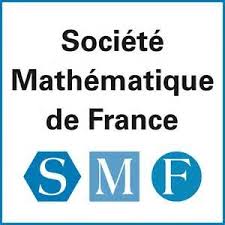[Ce n'est pas qu'ils n'auraient pas pu]
Cet article offre une critique de la notion de “concepts” en histoire des mathématiques. Certains historiens s'appuient parfois sur un argument mettant en avant une impossibilité conceptuelle, du style : certains auteurs ne pouvaient pas faire X, parce qu'ils n'avaient pas le concept Y. Nous discutons en détail ce que cela signifie dans le cas de la différence entre mathématiques grecques et mathématiques modernes. Nous montrons que l'argument de l'impossibilité conceptuelle est empiriquement et théoriquement peu solide. Pour rendre compte de la diversité historique, l'article offre une alternative fondée sur des pratiques qui s'auto-entretiennent et sur la notion de divergence interprétée non en termes des valeurs intellectuelles elles-mêmes (qui pourraient bien être universelles), mais des rangs que ces valeurs occupent dans différentes cultures et époques.
The article offers a critique of the notion of ‘concepts' in the history of mathematics. Authors in the field sometimes assume an argument from conceptual impossibility: that certain authors could not do X because they did not have concept Y. The case of the divide between Greek and modern mathematics is discussed in detail, showing that the argument from conceptual impossibility is empirically as well as theoretically flawed. An alternative account of historical diversity is offered, based on self-sustaining practices, as well as on divergence being understood not in terms of intellectual values themselves (which may well be universal) but in terms of their rankings within different cultures and epochs.
@article{RHM_2002__8_2_263_0,
author = {Netz, Reviel},
title = {It's not that they couldn't},
journal = {Revue d'histoire des math\'ematiques},
pages = {263--289},
publisher = {Soci\'et\'e math\'ematique de France},
volume = {8},
number = {2},
year = {2002},
zbl = {1091.01004},
language = {en},
url = {http://www.numdam.org/item/RHM_2002__8_2_263_0/}
}
Netz, Reviel. It's not that they couldn't. Revue d'histoire des mathématiques, Tome 8 (2002) no. 2, pp. 263-289. http://www.numdam.org/item/RHM_2002__8_2_263_0/
[1] [2003] On the Shoulders of Hipparchus, forthcoming in Archive for History of Exact Science, 2003.
[2] [1979] The Roots of Combinatorics, Historia Mathematica 6 (1979), pp.109-136. | MR | Zbl
[3] [forthcoming] Did the Greeks have the Notion of Common Fraction and did they Use it? Introduction to Chapter V of A Century of Greek Mathematics: Classics in Twentieth Century Historiography, ed. J.Christianidis, Boston.
[4] [1996] Essays on the Cultural Evolution of Thinking, Dordrecht: Kluwer, 1996. | MR
[5] , , , [1992] Exploring the Limits of Preclassical Mechanics, New York: Springer-Verlag, 1992. | MR
[6] [1992] Logistic and Fractions in Early Greek Mathematics: a New Interpretation, in Benoît (Paul), Chemla (Karine), Ritter (Jim), eds., Histoire des Fractions, Fractions d'Histoire, Boston: Birkhäuser, pp.133-147. | MR | Zbl
[7] [1987/1999] The Mathematics of Plato's Academy, Oxford: Oxford University Press, 1987; 2nd ed. 1999. | MR
[8] , [2001] Apollonius of Perga's Conica: Text, Context, Subtext, Boston: Brill, 2001. | MR | Zbl
[9] [1995] Un théorème de Fermat et ses lecteurs, St-Denis: Presses Universitaires de Vincennes, 1995. | MR | Zbl
[10] , , [1998] On the Second Number of Plutarch, The American Mathematical Monthly 105 (1998), p.446. | MR | Zbl
[11] [1913/1915] Archimedis opera, Vol. II/III, 2nd ed., Leipzig: Teubner, 1913-1915.
[12] [2001] La mise en texte mathématique: une analyse de l'‘Algorisme de Frankenthal', Methodos 1 (2001), p.61-100.
[13] [forthcoming] Conceptual Divergence-Canons and Taboos-and Critique: Reflections on Explanatory Categories, Historia mathematica 30 (2003). | MR | Zbl
[14] [1982] Techniques of Fractions in Ancient Egypt and Greece, Historia mathematica 9 (1982), pp.133-171. | MR | Zbl
[15] [1990] Demystifying Mentalities, Cambridge: Cambridge University Press, 1990.
[16] [1957] Herodorus and the Abacus, Hesperia 26 (1957), pp271-287.
[17] [1964] The Abacus and the Calendar I, Hesperia 33 (1964), pp146-167.
[18] [1965] The Abacus and the Calendar II, Hesperia 34 (1965), pp224-257.
[19] [1968] Abaci from the Athenian Agora, Hesperia 37 (1968), pp241-243.
[20] [1991] On the Notion of a Mathematical Starting Point in Plato, Aristotle and Euclid, in Bowen (A.C.), ed., Science and Philosophy in Classical Greece, New York: Garland Pub., 1991, pp.57-91. | MR
[21] [1971] Archimède, Paris: Les Belles Lettres, 1971.
[22] [1999a] The Shaping of Deduction in Greek Mathematics: a Study in Cognitive History, Cambridge: Cambridge University Press, 1999. | MR | Zbl
[23] [1999b] Archimedes Transformed: the Case of a Result Stating a Maximum for a Cubic Equation, Archive for History of Exact Science, 54 (1999), pp.1-47. | MR | Zbl
[24] [2002] Counter Culture: Towards a History of Greek Numeracy, History of Science, 40 (2002), pp321-352.
[25] [forthcominga] From Problems to Equations: a Study in the Transformation of Early Mediterranean Mathematics, Cambridge. | Zbl
[26] [forthcomingb] What is the Goal of the Sand-Reckoner? Apeiron. | MR
[27] , [1970] A Commentary on Horace: Odes, Book I, Oxford: Oxford University Press, 1970.
[28] [2001] Compter avec des cailloux : le calcul élémentaire sur l'abaque chez les anciens Grecs, Lausanne : Presses polytechniques et universitaires romandes, 2001. | MR | Zbl
[29] [1997] Hipparchus, Plutarch, Schröder, and Hough, The American Mathematical Monthly, 104 (1997), pp.344-350. | MR | Zbl
[30] [2000] Doing Philosophy with Machines: Hero of Alexandria's Rhetoric of Mechanics in Relation to the Contemporary Philosophy, Ph.D. thesis submitted at Cambridge University.
[31] [1975] On the Need to Rewrite the History of Greek Mathematics, Archive for the History of Exact Sciences, 15 (1975), pp.67-114. | MR | Zbl
[32] [1979] History of Ancient Mathematics: Some Reflections on the State of the Art, Isis, 70 (1979), pp.555-565. | MR | Zbl
[33] [1886] Die Lehre von den Kegelschnitten im Altertum, Kopenhagen: A.F. Host, 1886.









